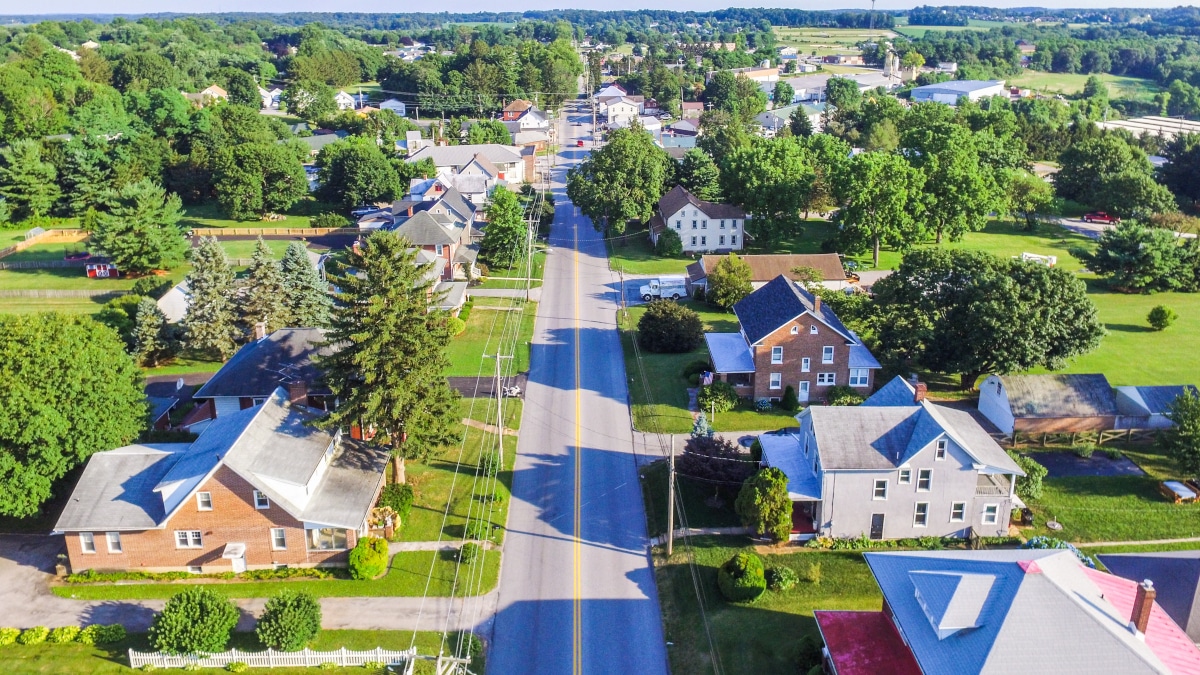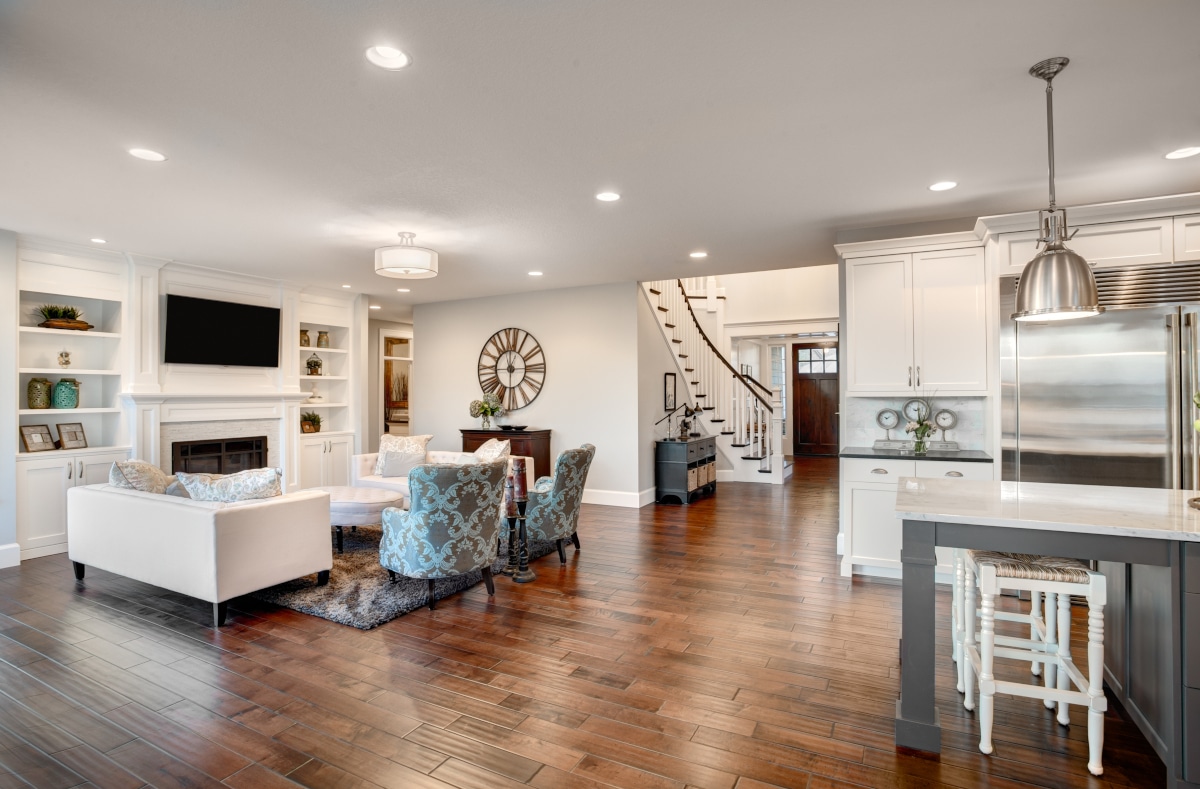
Published
Cost to sell in Pennsylvania | Realtor commission | How to save | Closing cost calculator | FAQs
The average cost to sell a house in Pennsylvania is 6.65% of a home’s final sale price, which includes realtor commission (5.48% of the sale price) and seller closing costs (1.2%).
It costs home sellers in the Keystone State an average of $17,019 to sell a home priced at $253,762 (Pennsylvania’s average home price).
Thankfully, you can save thousands on your home sale by using an agent-matching service to find a reduced listing commission far lower than the Pennsylvania average of 2.81%.
Here’s a complete breakdown of the average costs of selling a house in Pennsylvania, including tips on how to save on your sale.
Cost of selling a house in Pennsylvania
| Fee type | Average fee | Average cost |
|---|---|---|
| Realtor fees | 5.48% | $13,906 |
| Closing costs | 1.2% | $3,113 |
| Total costs | 6.65% | $17,019 |
*Costs assume a sale price of $253,762. Numbers are rounded off and may not be 100% precise.
The cost of selling a home in Pennsylvania is about average for the U.S. The table above shows that sellers pay 6.65% of the home’s purchase price when factoring in realtor commissions and seller closing costs.
That’s slightly less than the national average of 6.20%. And with Pennsylvania’s relatively low home values, it’s significantly cheaper to sell on a total cost basis compared to the national average.
| State | Home value | Cost to sell (percent) | Cost to sell (dollars) |
|---|---|---|---|
| Pennsylvania | $253,762 | 6.65% | $17,019 |
| Delaware | $369,624 | 6.67% | $24,659 |
| Maryland | $401,305 | 6.15% | $24,788 |
| New Jersey | $497,292 | 6.29% | $31,357 |
| New York | $450,431 | 6.03% | $27,157 |
| Ohio | $213,323 | 6.99% | $15,118 |
| West Virginia | $152,373 | 7.22% | $10,983 |
Overall home prices in Pennsylvania are lower than average for the region. Delaware, Maryland, New Jersey, and New York are all more expensive states.
Pennsylvania’s cost to sell as a percentage of the home price is moderate for this group of states at 6.65%. Sellers pay an average of $17,019 in Pennsylvania.
Home values vary quite a bit across Pennsylvania, so your total home sale costs will also vary. Among Pennsylvania’s five largest counties by population, the median sale price in July ranged from $245,000 in Allegheny County to $460,000 in Bucks County, according to Redfin data.
To determine the current market value of a your home, you can ask a real estate agent for a free comparative market analysis (CMA). Most real estate agents are happy to provide a CMA report when you ask about listing your home. (It’s a way for them to show you that they’re knowledgeable about the local market and hopefully earn your future business.)
Here’s an example of your potential costs at various price points, including realtor fees and seller closing costs.
| Sale price | Realtor fees (5.48%) | Closing costs (1.2%) | Total cost |
|---|---|---|---|
| $200,000 | $10,600 | $1,400 | $12,000 |
| $300,000 | $15,900 | $2,100 | $18,000 |
| $400,000 | $21,200 | $2,800 | $24,000 |
| $500,000 | $26,500 | $3,500 | $30,000 |
| $600,000 | $31,800 | $4,200 | $36,000 |
The main factors impacting your Pennsylvania home sale costs include:
Typical real estate agent commission in your area
While the state-wide average rate is 5.48%, rates may be higher or lower depending on what’s normal in your area.
Your success (or failure) in negotiating rates
Realtor fees aren’t fixed — they are completely negotiable. You may be able to negotiate a rate lower than what’s typical in your area.
Be careful when negotiating rates with newer agents, warns Doug Greene, owner of Philadelphia’s Signature Properties.
“Cheaping out on your new agent may send a signal that you aren’t looking for the full white-glove experience,” says Greene.
How you find a realtor
You can potentially save thousands in realtor fees by using an agent-matching service to find a realtor that has pre-negotiated a listing agent fee that’s much lower than the typical listing agent commission rate of 2.81%.
Optional costs
The estimated total cost to sell of 6.65% in Pennsylvania does not include other potential costs like home staging, deep cleaning, and pre-listing repairs, which could add thousands more to your home sale costs.
Your negotiated contract
Home sellers are responsible for paying most closing costs in Pennsylvania. Sellers typically cover all commissions, transfer taxes, and smaller expenses such as notary fees and wire transfer fees.
Sellers may also be responsible for home preparation costs, a pre-listing appraisal and inspection, attorney fees, homeowners association (HOA) fees, and a mortgage payoff.
Buyers take on the remaining expenses, which generally include appraisal and inspection fees, lender’s title insurance, a home warranty, and buyer closing costs for the mortgage such as an origination fee.
Sellers may offer to cover certain buyer closing costs to motivate potential buyers to submit an offer. This practice is more likely if your housing market currently favors buyers over sellers.
Here’s a deeper look at your expected home sale costs.
1. Pennsylvania realtor commission (5.48%)

Pennsylvania home sellers pay an average of 5.48% of the home’s sale price on realtor commissions, which is deducted from the seller’s net proceeds at closing. The 5.48% fee covers both the listing agent and the buyer’s agent commission.
Your actual commission cost depends on your home’s final sale price. Here’s what you might expect to pay in realtor fees at various price points.
| County | Median sale price | Commission cost |
|---|---|---|
| Allegheny | $245,000 | $12,985 |
| Philadelphia | $270,000 | $14,310 |
| Delaware | $308,500 | $16,351 |
| Montgomery | $420,000 | $22,260 |
| Bucks | $460,000 | $24,380 |
*Median sale prices as of July 2022 according to Redfin. Commission costs assume an average realtor commission of 5.48%.
How to save on Pennsylvania realtor fees
Here are some tips on how to save money on your home sale.
Use a discount broker
A discount real estate broker offers sellers a reduced commission fee with no strings attached. The broker’s listing agents charge less than the average rate, such as a 1–2% listing fee vs. the typical 2.5–3% rate.
Agents that partner with these firms also provide all of the services you’d expect to receive from a traditional realtor. Our agent-matching service is free to try with no obligation, so it’s worth starting here.
» MORE: The Best Discount Brokers for Every Budget
List your home without a realtor
You can avoid paying Pennsylvania listing commission entirely by selling without a realtor. Expect to save 2.81% off of your home sale, since you avoid paying listing agent commission.
However, the typical FSBO home sells for close to $60,000 less than agent-listed homes, according to the National Association of Realtors, so you might lose money on the sale. You’ll also be on the hook for all of the tasks normally handled by a listing agent.
Pennsylvania agents say that selling FSBO is fairly common in the state, but consider the likelihood that you’ll get better results by hiring a trained, licensed realtor to assist you.
Negotiate a lower rate
Agent commissions aren’t set in stone. There’s no law setting a fixed realtor fee in any part of the country, including Pennsylvania, so you can try to negotiate a lower commission rate with your realtor.
You may have more luck reducing the commission rate if you plan to buy a new home with the same agent that’s helping you sell since the agent will earn a commission on both transactions.
Negotiating commission may also work on a high-value property, since the agent will still earn a substantial commission on the home sale, despite the lower rate.
2. Closing costs for sellers in Pennsylvania (1.2%)
Seller closing costs typically add another cost of 1.2% or more to the home’s final sale price, according to our data. (Closing costs do not include realtor commission.)
Based on the average Pennsylvania home value of $253,762, the typical home sellers pays $3,113 in closing costs.
Pennsylvania seller closing costs typically include transfer taxes (split with the buyer), prorated property taxes, and miscellaneous fees such as recording fees and deed preparation fees.
The seller might also be responsible for attorney fees, home preparation costs, a pre-listing appraisal and inspection, a land survey, HOA fees, and a mortgage payoff.
Buyers are on the hook for everything else, which could include appraisal and inspection fees, title insurance, a home warranty, and buyer closing costs for the mortgage.
The exact breakdown of closing costs between the buyer and seller varies with each transaction. The purchase and sale agreement spells out who is responsible for paying each cost.
If the local market is more favorable to buyers, the seller may agree to cover certain buyer closing costs, such as homeowner’s insurance or the buyer’s portion of property taxes due at closing.
Transfer taxes
Pennsylvania imposes transfer taxes on every home sale. The statewide transfer tax rate is 1% of the value of the property.
In addition to the 1% tax collected by the state’s Department of Revenue, municipal governments and school districts charge their own transfer taxes. The rate varies from place to place. Bellevue, in Allegheny County, levies 1.5% in transfer taxes, while Philadelphia charges a whopping 3.278%.
In most cases, the total transfer tax amount is split evenly between the buyer and seller. On a $250,000 house in Philadelphia, the total transfer tax (4.278%) will come to $8,195. You can expect to pay half of that, or about $4,098.
Prorated property taxes
Pennsylvania home sellers must pay property taxes on the days they’ve owned their home in the calendar year. Taxes are prorated and split between the seller and buyer.
The tax is due at closing. Actual costs depend on your annual taxes, and how many days you live in your home up until the closing date.
Speak with your realtor or attorney for more details on what you might owe in prorated taxes.
Miscellaneous fees
You may be responsible for other, smaller fees, including recording fees of approximately $150.
Other potential fees and estimated costs include:
- Closing fee (settlement fee): $0–200
- Deed preparation fee: $100
- Document preparation fee: $200
3. Other potential costs
Attorney fees
You may decide to hire an attorney to facilitate your home sale, particularly if you have any questions about the transaction or your responsibilities as a seller. But it’s relatively uncommon in Pennsylvania.
“No attorneys are needed in Pennsylvania as it is a title agency state,” comments Greene, the Signature Properties owner. “You can certainly hire an attorney if you feel that your transaction is non-standard or unique but it’s definitely not required for typical transactions.”
Greene adds that title companies oversee the closing of escrow and process the title work, closing records, and all other associated terms for the deal to close.
For a home sale involving any legal issues — such as easements, liens, title defects, or zoning restrictions — it’s usually a good idea to hire a real estate attorney. An attorney can offer legal advice, review your documents, and help you avoid costly mistakes.
The average hourly rate for real estate attorneys in Pennsylvania is $286, according to legal technology firm Clio.
» LEARN: Do I Need a Lawyer to Sell My House?
Home preparation costs

Preparing your home for sale could add thousands more to your upfront costs.
Home staging costs between $745 to $2,659 on average in the U.S., according to HomeAdvisor. Actual costs vary widely based on your location, the size of the home, and the number of rooms furnished.
Regardless of your choice, you need high-quality photos of your house to display online. Professional photos can cost $100–300, but your real estate agent will likely arrange and pay for this.
Expect to spend at least $300 for deep cleaning, if required. Finally, pre-listing home repairs and improvements could add hundreds, if not thousands to your budget, depending on your home’s condition.
Pre-listing appraisal and inspection
An appraisal is a professional estimation of a home’s value. Buyers usually pay for appraisals in Pennsylvania, but obtaining a pre-sale appraisal can give you a more accurate starting point for pricing your home.
The cost of an appraisal for a single-family home in Pennsylvania ranges from $239–$379, averaging $309, according to ProMatcher.
You may also want to consider ordering a pre-listing inspection to identify any problems with the house before the buyer can discover them, so there are fewer surprises during negotiations.
Home inspection services in Pennsylvania typically range from $290–405 for a 2,000-square-foot house, averaging $348, according to ProMatcher.
Some urban areas of Pennsylvania, including the City of Pittsburgh and parts of Alleghany County, require sellers to obtain a “dye test.” The test is used to determine if the property’s stormwater collection devices are connected to a sanitary sewer, which is intended to carry raw sewage only.
If the dye test reveals rainwater discharge into the sewer system, the seller must remedy it before the sale. The fee for a dye test is $125 in Marshall Township, but the cost may vary in other locations.
Land survey
A land survey defines the legal boundaries of your property. It’s a good idea to hire a surveyor if you’re unsure about the precise location of your property’s lot lines. In many cases, the buyer’s lender requires a land survey for the mortgage loan.
In Pennsylvania, the buyer typically pays for a survey, but who covers this cost may be negotiable. The cost of a survey varies based on the surveyor and the individual property.
According to ProMatcher, the cost of a residential boundary survey for up to 1/2 acre in Pennsylvania averages $634.
Homeowners association dues
You may owe homeowners association (HOA) dues if your home is located in an HOA community. Sellers are typically responsible for covering a prorated amount of their annual membership dues at closing.
If the HOA charges fees to transfer homeownership records to the buyer at closing, the seller usually pays them. Costs vary between communities, but they commonly range from $150 to $500. Check with your agent, attorney, or HOA board for more information on what you might owe.
Buyer’s closing costs
In addition to the above costs, buyers may request that sellers cover some of their closing costs. Seller concessions include anything the seller gives the buyer to close the deal.
Seller concessions often come in the form of seller credits towards the buyer’s closing costs — 2–3% of the sale price is common — or home warranty policies. However, they can also include compromises that don’t hold monetary value, such as an agreement to close on a date that’s preferable to the buyer.
Do sellers or buyers cover the buyer’s closing costs? It’s highly dependent on the state of the local market, according to Pennsylvania real estate experts.
“In today’s market, the buyer is paying everything except for the transfer taxes because of the big demand for houses in Pennsylvania, which is only rising year after year,” notes real estate investor and developer Ben Gold, founder of Philadelphia’s Recommended Home Buyers.
But Greene notes that it’s common for sellers in his market to cover the buyer’s closing costs on a transaction.
“It’s customary and has not really changed for many years,” he says. “During the pandemic surge we did see some creative buyers offer to split or cover the costs to differentiate their offer, but that kind of activity was short-lived.”
Appraisal and inspection fees
Most Pennsylvania home buyers pay for an appraisal and inspection to determine the value and condition of the property.
Lenders require an appraisal as part of the approval process for most home purchase loans. Appraisals for single-family homes in Pennsylvania range in cost from $239–$379, according to ProMatcher.
Prospective buyers also conduct a general home inspection to uncover any serious issues with the property, from a cracking foundation to a leaky roof. The home inspection results could lead to further visits by other professionals such as engineers, electricians, or exterminators.
Sellers may offer to pay for inspections as a buyer incentive, and some sellers purchase their own pre-listing inspections. Pennsylvania home inspections range from $290–405 for a 2,000 square foot house, according to ProMatcher.
Title insurance
Title insurance protects home buyers or lenders from possible losses arising after the transaction due to issues with the property’s ownership or title. An owner’s policy protects the buyer’s interest in the property, whereas a lender’s policy protects the lending institution.
If the buyer is taking out a mortgage, their lender will require them to purchase a lender’s title insurance policy. In Pennsylvania, owner’s title insurance is optional and customarily paid for by the buyer, but the seller may offer to cover it.
Pennsylvania’s title insurance rates are “all-inclusive” — meaning the title insurance charge includes the cost of the title search, title examination, escrow, and settlement services, as well as the insurance risk itself, according to the Title Insurance Rating Bureau of Pennsylvania.
Title insurance rates are dictated by the Commonwealth of Pennsylvania and range from about $1,886 for a $250,000 house to $3,305 for a $500,000 house, according to a table prepared by Century 21 Core Partners.
Home warranty
A home warranty offers protection from high repair costs on major appliances and electrical and plumbing systems. The homeowner pays an annual or semi-annual premium and enjoys reduced service rates when a technician comes to evaluate or fix a problem.
Homebuyers can purchase a home warranty for themselves, but some sellers offer to buy a home warranty plan for the buyer as an incentive. Annual premiums for a home warranty in Pennsylvania average $577 for a single-family home, according to Review Home Warranties.
Capital gains tax
The IRS offers a tax break on capital gains from the sale of your primary residence, as long as you meet certain requirements:
- Single homeowners can deduct up to $250,000 of gains from the sale of their property;
- Married couples can deduct up to $500,000 of gains.
- You must have occupied the property for at least two of the past five years.
- You can also deduct certain repairs and improvements from your home’s cost basis.
» LEARN: How to avoid capital gains on a home sale
Cost of selling a house in Pennsylvania calculator
Use our calculator to get a rough estimate of what you might walk away with in your home sale. Change the home sale price and closing costs to fit your particular situation.
For more accurate numbers, we recommend finding a local realtor to provide you with a free seller’s net sheet: a personalized document that estimates how much you may earn in your home sale.
Pennsylvania seller closing costs: FAQs
How much are closing costs for sellers in Pennsylvania?
Pennsylvania closing costs average more than 6% of a home's final sale price. That figure includes realtor commission fees, which often cost sellers more than 5%, along with common seller closing costs, such as transfer taxes and prorated property taxes.
We break down the best ways to save on Pennsylvania realtor fees.
Who pays closing costs in Pennsylvania?
Buyers and sellers have separate closing costs in Pennsylvania. Prorated property taxes are split between both parties. Sellers are usually responsible for paying all commissions, half of the total transfer taxes, and other miscellaneous fees. Buyers cover other closing costs such as title insurance and appraisal and inspection fees.
However, actual costs depend on your location. We recommend you find a realtor to get a seller's net sheet, which breaks down all your potential home sale costs. Our agent-matching service can match you up with top local agents for a free seller's net sheet.
Do buyers or sellers pay realtor fees in Pennsylvania?
Sellers usually cover both the buyer's agent and seller's agent commission in Pennsylvania, which amounts to over 5% of the home's final sale price. Real estate commission will likely be your single largest home-selling cost. Fortunately, commission is negotiable.
What is the cheapest way to sell a house in Pennsylvania?
The cheapest way to sell a house is to use an agent-matching service that has pre-negotiated a low listing agent fee with its agents. That could save Pennsylvania home sellers thousands in realtor fees.
Recommended reading
The True Costs of Selling a Home Revealed: What does it really cost to sell a house in the U.S.? We explore all the common expenses in a home sale, and how you can save thousands.
How to Sell a House Without a Realtor in Pennsylvania: Selling a home For Sale by Owner (FSBO) in Pennsylvania means you avoid paying a listing commission, but there are challenges you should learn about first.
How to Find a Realtor: Find out how you can connect with a great real estate agent. We help you zero in on the best approach, whether you’re selling or buying.
Seller Net Sheet Guide: Learn how a net sheet can help you estimate your potential home sale proceeds, and how to get one for free.
Negotiating Realtor Commission: Knocking your real estate commission down just one percentage point could save you a ton of money on your home sale.

Leave a Reply